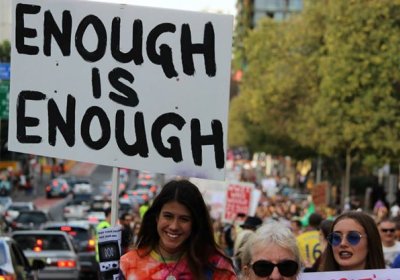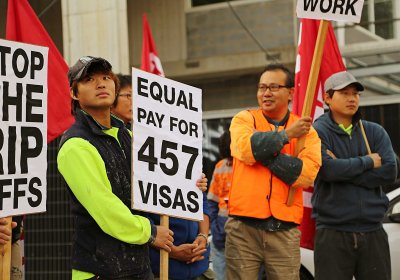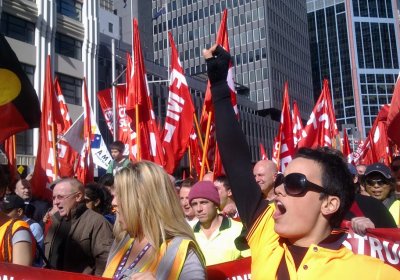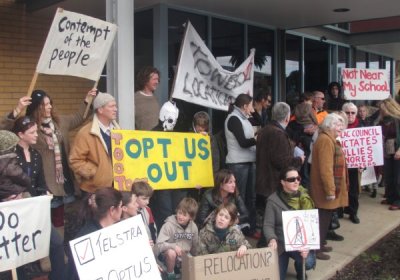The government is ducking and weaving in the face of combined resistance to its cruel budget.
Employment Minister Eric Abetz admitted to a Senate Estimates hearing on June 26 that the Productivity Commission's review of the Fair Work Act will now be delayed until the second half of this year.
The media say this is to allow the government to devote its energies into getting its budget measures through, and to avoid an all-out campaign by unions to "revive the spectre of Work Choices".
Tim Gooden
Well, here we are at the halfway mark. It’s been about eight weeks since Alcoa announced it was shutting up shop in Geelong and there’s a little over eight weeks before workers are tossed out the gate for good.
But where are the announcements from the state and federal governments or Alcoa about how they will address the economic black hole and job losses in Geelong?
Nobody told me Game of Thrones was starting early this year.
Wonderful to hear King Abbott pronounce the return of titles, especially after Sir Joseph of the Coffers recently declared the end of entitlement. I guess he was only referring to us common folk.
But we don’t have to worry too much because peasants and workers don’t receive knighthoods. Can you imagine Sir Timothy Francis Gerald Gooden the sixth? No, I thought not.
Titles are designed to put one person higher than another, reinforcing the notion that somehow some people are better than others.
Another International Women’s Day passes. It’s been 157 years since working women first took to the streets. Back then, thousands of women textile workers marched through the wealthy boroughs of New York, protesting their miserable working conditions.
Well it's my first day back at work and already the year has started with the predictable attack on workers that usually accompanies conservative governments in their first term of office.
They always claim that unions are corrupt and should have special laws to prevent them from being involved in workplaces or politics.
All workers are treated equal, right? Same award rates for the same work, equal pay for women and uniform national modern laws. But what about workers who are not allowed to work, such as refugees on bridging visas; or workers brought by employers to Australia on 457 visas, who are used for a short time and then sent back?
Are these workers being treated equally and how can their treatment affect the rest of us in the future?
Workers from the Australian Services Union (ASU) and the Australian Nurses Federation (ANF) stopped work for the second time in a week to protest outside Ballarat city hall.
The second protest coincided with a visit from Victorian Premier Ted Baillieu on April 15.
However, Baillieu did not turn up while the workers were protesting, delaying the scheduled event for 90 minutes.
The ASU and the ANF have been locked in negotiations with the Ballarat City Council for more than 12 months for a new enterprise agreement and wage rises. Workers last received a pay rise in July 2009.
Two hundred people attended the launch of the National Museum of Labour on November 11, in the old government fitter’s workshop in Kingston, ACT. They heard from union officials, politicians and rank-and-file unionists.
Unions ACT secretary Kim Sattler introduced speakers including: Australian Council of Trade Unions president Ged Kearney; Anna Booth from major sponsors, Slater & Gordon; historian Norman Abjorensen, and federal Labor MP for Eden Monaro, Mike Kelly.
To find out more, visit National Museum of Labour website.
Regional labour councils from New South Wales, Victoria and Western Australia met in Canberra over November 11-12 to discuss building the union movement in regional areas. Unions ACT hosted the meeting.
Australian Council of Trade Unions president Ged Kearney discussed the ACTU’s plans to increase union membership and sought feedback from the regional councils present.
The meeting resolved to improve communication between councils.
For many union leaders afraid of a Coalition victory on August 21, campaigning against Tony Abbott in the federal election simply means campaigning for Julia Gillard.
With a conservative win on the cards, unions have escalated their pro-ALP campaigning. The Australian Manufacturing Workers Union (AMWU) — which has filled Labor’s coffers with more than $340,000 for the election campaign — has enlisted officials for ring-arounds in marginal seats.
On July 17, unionists and residents from Forrest, a small town in the Victorian Otways region, converged on the shire office at Colac to protest against an Optus communications tower being placed in the middle of their town.
The community picket line was established on the site for the new tower two weeks earlier. The community sought support from the construction unions, which it has received from the Construction Forestry Mining Energy Union and the Electrical Trade Union.
On May 18, during proceedings in Fair Work Australia, negotiations ended between Ford and the Electrical Trades Union and Australian Metal Workers Metals Division over the “Ford Australia Enterprise Agreement 2009 (Skilled Trades)”.
The content of the agreement has been the subject of a dispute that has involved two 24-hour strikes.
- Previous page
- Page 3
- Next page








